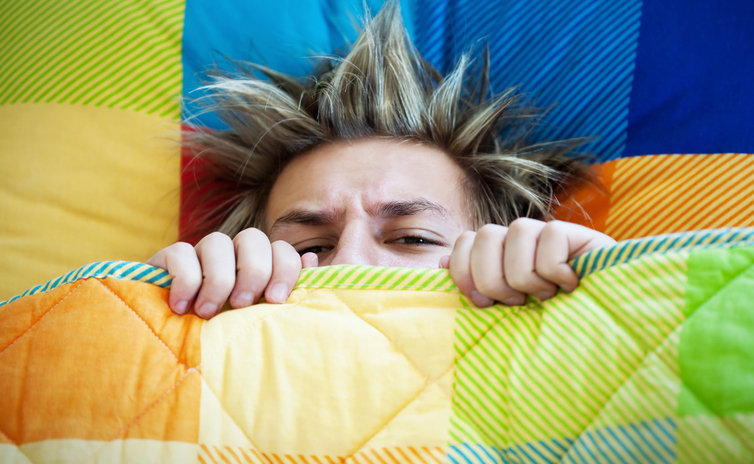
They may be stubborn like Black Rhinoceroses, stealthy like bats, cute like gerbils, and – some might argue – disgusting like cockroaches, but teenagers share another common trait with these well-known creatures: many of them are naturally nocturnal. And most of those adolescents spend those late-night hours on their electronic devices, whether it’s playing video games, watching Netflix movies, or texting or Facetiming with friends.
Our normal circadian rhythm calls for us to fall asleep when the sun sets and get up when the sun rises. That’s the optimal scenario, and one that young children and adults adhere to quite nicely.
But teenagers, as parents well know, are a different breed. And yet another way that they manifest their dissimilarities is in their sleep patterns.
Some researchers, such as those at the Centers for Disease Control and Prevention, suggest that teenagers who get less than seven hours of sleep on school nights are more likely to engage in risky behaviors than their schoolmates that get in a solid nine hours.
Based on questionnaires administered to more than 50,000 high school students, the CDC linked inadequate sleep in 2011 to a greater propensity for drinking, marijuana use, smoking, sexual activity and depression. Three years later, the American Academy of Pediatrics recommended that schools not start until 8:30 am to enable teens to get 8.5 to 9.5 hours of sleep – which the University of Minnesota later found to result in improved attendance and academic performance in core classes.
That all sounds fine and good, but is it realistic to expect that teens will get that much quality sleep on a regular basis? And are we really getting to the bottom of why these adolescents can’t nod off in the first place?
Certainly, the prevalence and popularity of electronic devices is a major factor. Ask any teen to power down or put away their device and you may as well be asking them to sever a limb.
But that’s what’s going on externally. What if there are some internal root causes of insomnia that could be making it difficult for your teen to fall asleep?
From a holistic perspective, there’s much to look at.
Check his cortisol level. The hormone responsible for regulating blood pressure, cortisol needs to be at appropriate levels to maintain a variety of bodily functions, including sleep. If your teen is suffering from lack of cortisol or adrenal fatigue, his body will immediately react by producing more adrenaline to bring his low blood pressure back up. The result is like chugging a Red Bull – your teen will be hyper-alert and hyper-energized – the exact opposite of what’s required for a good night’s slumber.
Verify her vitamin consumption. If your teen is like most, chances are she doesn’t consume a nutritionally balanced diet of fresh fruits, vegetables and lean protein – making it even less likely that she’s getting the essential vitamin, minerals and microelements she needs for optimal health and wellbeing. This, literally, hits her in the gut by preventing her digestive system from adequately absorbing the vital nutrients it needs, and hindering it from producing hormones like melatonin, or neurotransmitters like serotonin, that contribute to quality sleep.
Find out what’s – literally – bugging him. If your adolescent has an impacted tooth, clogged-up sinuses, root canal inflammation or other chronic infection, it can significantly compromise his immune system. If he also happens to be suffering from the social, academic and/or athletic stress that all teens face, the body will divert cortisol to address that anxiety. When cortisol is unavailable for other bodily functions – like sleep – it once again sets your teen up for a fitful, unproductive slumber.
As a holistic practitioner, Dr. Sergey Kalitenko believes that insufficient sleep may be due just as much to internal root causes as external environmental stimuli. If you’d like to get to the bottom of your teen’s sleep challenges, schedule a consultation at his Brooklyn office (718-382-9200) or Great Neck office (516-467-0253.)
http://mainenewsonline.com/content/16048301-getting-less-seven-hours-sleep-may-make-teens-engage-risky

